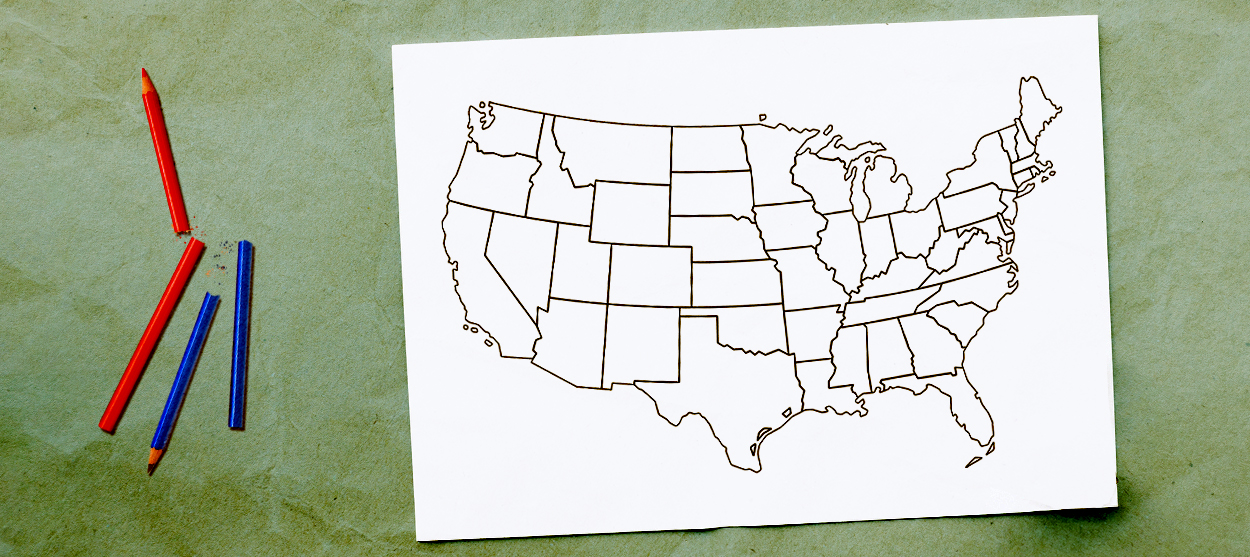Abolishing the Electoral College is closer than you think
How to pass the National Popular Vote Compact for less than the cost of one vanity Senate campaign


A free daily email with the biggest news stories of the day – and the best features from TheWeek.com
You are now subscribed
Your newsletter sign-up was successful
The Electoral College is a historic relic in our constitutional system. It's basically never worked as intended. The original idea in the Constitution was to have state legislatures select a well informed deliberative body of electors to actually gather to choose a president and to have the second-place vote getter become vice president. The runner-up becoming VP was such a disastrous idea it barely lasted a decade before we changed it with the 12th amendment. By the end of the 19th century, all states gave up on having legislatures choose the electors, creating the very type of direct elections the system was meant to avoid.
In recent times, the Electoral College has only become more problematic with each passing election cycle. First and foremost, it constantly risks handing the presidency to the candidate who received fewer votes. On top of that, the Electoral College creates terrible incentives, both for campaigning and governance. Candidates put all their energy and resources into a handful of swing states. Once in office, presidents have little political reason to solve problems in deep red states or deep blue states. For example, it was widely reported that Donald Trump paid little attention to the massive wildfires this year because California is a blue state. Yet Trump won more votes in California than he did in Texas.
There is an easy and relatively cheap way to fix this.
The Week
Escape your echo chamber. Get the facts behind the news, plus analysis from multiple perspectives.

Sign up for The Week's Free Newsletters
From our morning news briefing to a weekly Good News Newsletter, get the best of The Week delivered directly to your inbox.
From our morning news briefing to a weekly Good News Newsletter, get the best of The Week delivered directly to your inbox.
The National Popular Vote Compact would guarantee the presidency to the candidate who receives the most popular votes in all 50 states and the District of Columbia. Once states with a total of 270 Electoral College votes sign on to the compact, those states will agree to give all their electors to the candidate who gets the most votes nationally. This will make the Electoral College effectively meaningless in practice. So far, states with 196 electoral votes have joined, so only 74 more electoral votes are needed.
There is also a way for regular people to get this over the finish line without convincing a single additional state legislator. There are 17 states not currently part of the compact that allow citizen ballot initiatives — together, they control a total of 114 electoral votes. (This doesn't include Florida, which has 29 electoral votes but requires ballot amendments to meet a 60 percent threshold before they are adopted, making it an especially difficult place to pass such a measure).
The National Popular Vote Compact could be placed on the ballots in, for example, eight states with more than 74 electoral votes by gathering roughly 1.3 million valid signatures. According to an analysis by Ballotpedia, for ballot measure campaigns in 2020, the average cost per required signature was $8.09. So it would cost only about $10.6 million to put a national popular vote before voters across the country in 2022. Even spending an average of an additional $9 million per state for campaign staff, mailers, TV ads, etc., the whole effort across numerous states could cost $74 million or less. For comparison, just over $7 million was spent by both sides combined on the recent National Popular Vote Compact ballot measure in Colorado.
That total is $14 million less than what Democrat Amy McGrath raised in her Senate race against Republican Mitch McConnell — a race she lost by over 19 points. We could likely end the idiotic Electoral College for less than what just one party raised for just one doomed Senate candidate.
A free daily email with the biggest news stories of the day – and the best features from TheWeek.com
As mentioned, the National Popular Vote Compact was recently put to the test in Colorado and passed. This year a group called Protect Colorado's Vote tried to remove Colorado from the compact by placing a referendum on the ballot, but voters endorsed the compact, voting 52.3 percent in favor. This is despite the fact that Colorado has "benefited" from being a presidential swing state for multiple election cycles, getting a disproportionate share of attention from candidates.
While this might be seen as a partisan dispute, it really shouldn't be. In the two most recent presidential elections, the Electoral College favored Republicans, but that is neither the historic norm nor is there any guarantee it will continue. In 2004, 2008, and 2012 the different breakdown of votes and states gave Democrats an advantage. While Obama's margin was large enough for it not to matter in 2012, he likely could have lost the popular vote by 1.5 points and still won re-election. With Georgia and Texas trending blue and Florida trending red, it is entirely possible Democrats will have an Electoral College advantage again in a few years.
The four of the referendum states mentioned above that voted for Biden this election (with 37 electoral votes) have every reason to make sure their votes aren't overridden by an anti-democratic relic. But so do the 13 states that went for Trump, for next time it could be their candidate who is on the short end of an Electoral College-popular vote split.
There is no guarantee a ballot measure to join the National Popular Vote Compact would succeed in every state where it could be put on the ballot, but it doesn't need to. There are also several states that don't allow ballot measures where the compact has already passed in at least one legislative chamber, including Virginia, Oklahoma, and Minnesota. If more state ballot measures supporting the compact passed, it would likely cause legislators in other states to finally sign on. Even relatively modest spending on a coordinated effort could make 2024 the first election ever where the president was selected by a true popular vote.
Jon Walker is the author of After Legalization: Understanding the Future of Marijuana Policy. He is a freelance reporter and policy analyst that focuses on health care, drug policy, and politics.
